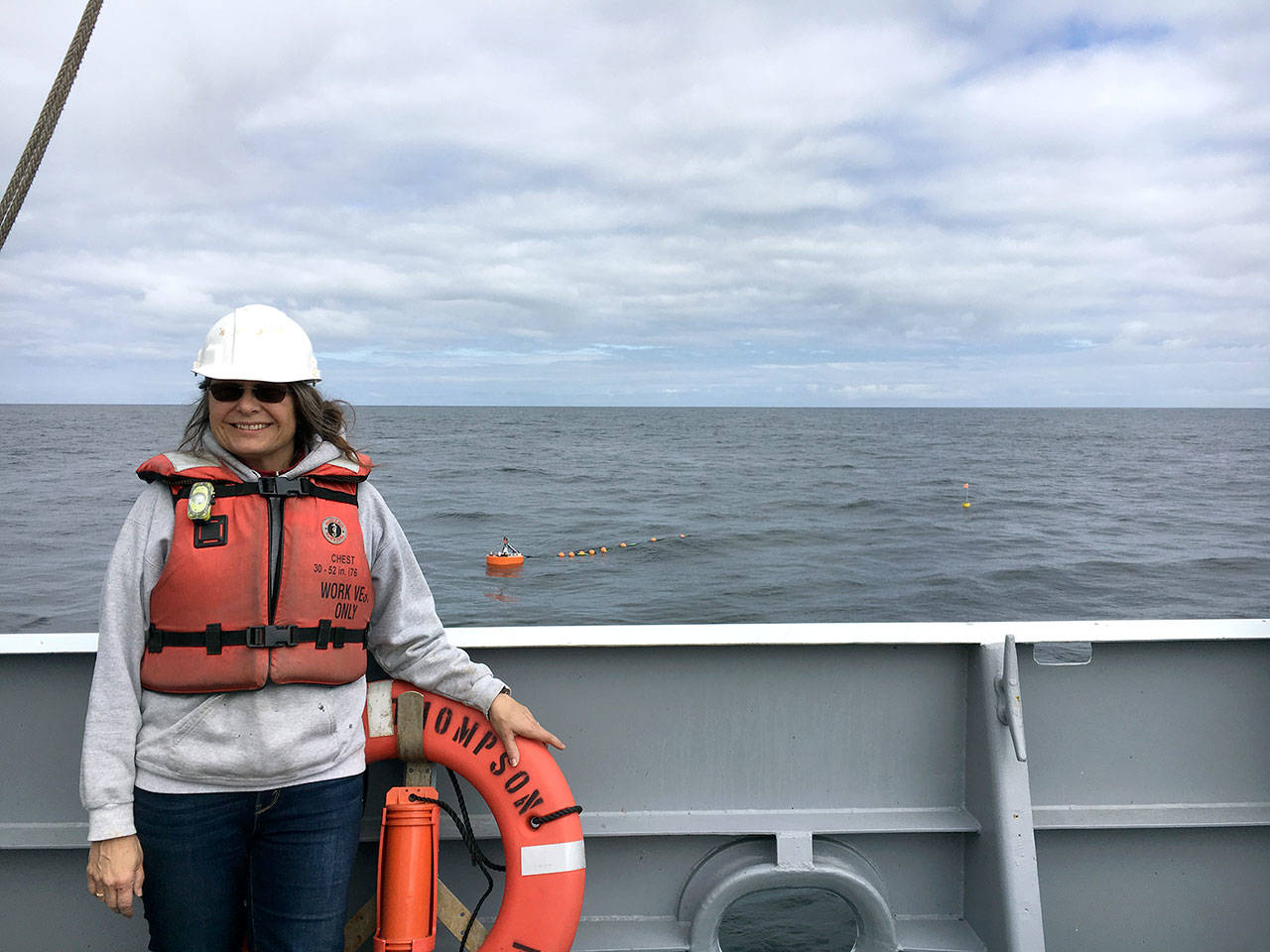PORT TOWNSEND — University of Washington professor Jan Newton will be the featured speaker at the Port Townsend Marine Science Center’s upcoming “The Future of Oceans” lecture.
Newton, an advocate for preserving and restoring the Salish Sea ecosystem, will describe the physical, chemical and biological dynamics of Puget Sound and coastal Washington state, including the effects of humans and climate on water properties.
The lecture is set for 3 p.m. Jan. 13 at the Chapel at Fort Worden State Park, 200 Battery Way, Port Townsend.
Admission is $5. Students, teachers and members of the Octopus and Orca Donor Circle are admitted for free.
“The ocean affects our lives in so many ways,” Newton said in a news release. “As the largest feature on the planet, many of us under appreciate this fact.
“Ocean observing efforts aim to increase public knowledge about the sea, and the sea in our backyard that is connected to the world ocean.”
Newton is a principal oceanographer with the Applied Physics Laboratory of the University of Washington and is an affiliate assistant professor in the UW School of Oceanography and the School of Marine and Environmental Affairs.
She is the co-director of the recently established Washington Ocean Acidification Center, which operates from the UW College of the Environment and fosters connections among researchers, policy makers, industry and others to address priorities established by the state legislature concerning ocean acidification.
She is also the executive director of the Northwest Association of Networked Ocean Observing System, which is part of a broader program of integrated ocean observing systems throughout the county.
After Newton there is one more speaker planned.
On Feb. 10, Bob Boekelheid will discuss seabirds and marine mammals of the Protection Island Aquatic Reserve.
Designated in 2010, Protection Island Aquatic Reserve protects 23,778 acres of state-owned aquatic lands around Protection Island National Wildlife Refuge. Biologists consider the rich habitats of Protection Island, supported by the surrounding aquatic reserve, the single most important nesting area for seabirds in the Salish Sea.
The Future of Oceans lecture series, started in 2014, explores the frontiers of ocean research and emerging technologies while confronting the human capacity to understand and sustain healthy oceans. The series is made possible with support by the Darrow family.
Admission is $5. Students, teachers and members of the Octopus and Orca Donor Circle are admitted for free.
For more information, contact the Port Townsend Marine Science Center at info@ptmsc.org or 360-385-5582.
________
Reporter Jesse Major can be reached at 360-452-2345, ext. 56250, or at jmajor@peninsuladailynews.com.

